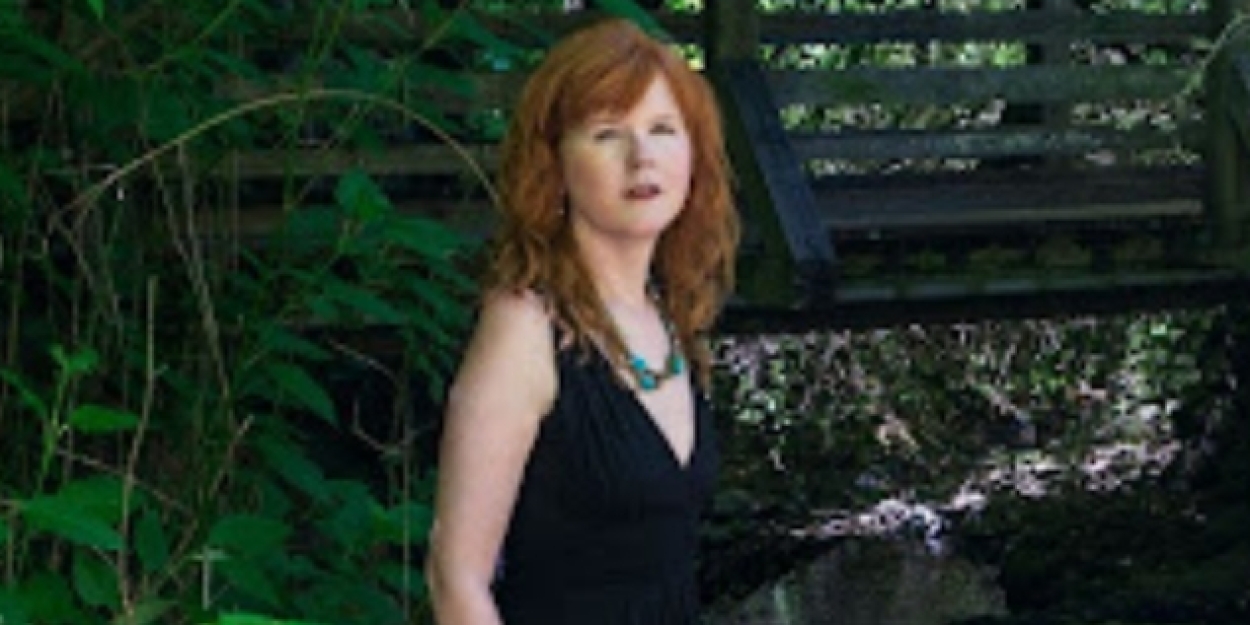Pianist Sarah Cahill Performs THE WOODS SO WILD at Wave Hill
Featuring music by Samuel Coleridge-Taylor, Mamoru Fujieda, William Byrd, Errki Melartin, Amy Beach, Leo Ornstein and Leokadiya Kashperova.

On Sunday, November 10, 2024 at 2:00pm pianist Sarah Cahill, described as a “keen and captivating pianist” by The Washington Post, brings her program The Woods So Wild to Wave Hill's Mark Twain Room (4900 Independence Ave.) as part of Wave Hill's Fall Foliage Fest. Cahill's program features a colorful assortment of music that resonates with the beauty of the fall season.
Forests, oceans, desert, mountains, flowers, grasslands, wilderness – throughout music's history, composers have celebrated nature and the great outdoors. As humanity urgently strives to preserve this precious environment, reflecting on nature through music heightens society's attention to its great wonders. In this program, beginning with William Byrd's The Woods So Wild from 1590, Sarah Cahill takes listeners on a wondrous journey through musical portraits of the natural world including Forest Scenes by Samuel Coleridge-Taylor, Morning in the Woods by Leo Ornstein, The Murmur of the Wheat by Leokadiya Kashperova, Hermit Thrush at Eve by Amy Beach, Patterns of Plants by Mamoru Fujieda, and The Mysterious Forest by Erkki Melartin.
“It's such an honor to perform at Wave Hill as part of their Fall Foliage Fest! Trees and forests have enchanted composers from William Byrd to Leo Ornstein, and I'm excited to combine these works in my concert.” says Cahill. “I look forward to this musical journey into the natural world together, in the Mark Twain Room overlooking the Wave Hills gardens”
About the Music Cahill Features in The Woods So Wild:
Composed in 1907 at the turn of the 20th century, Samuel Coleridge-Taylor's remarkable Forest Scenes depicts an ethereal tale of a romantic encounter between a forest maiden and a phantom. The five movement work unfolds like a musical novel, with each section depicting a new chapter between the maiden and the phantom. The writing is fanciful and expressive; Coleridge-Taylor includes a variety of rhythms, tempo changes, and chord progressions throughout the work to evoke both the vacillating emotions of the characters and the dynamic actions of the story.
The impetus behind Mamoru Fujieda's Patterns of Plants is just as organic as the work's namesake objects. Fujieda measured and recorded the electrical impulses on different plants' leaves with the help of “Plantron” –– a tool created by botanist and artist Yūji Dōgane. From there, Fujieda converted the electrical impulses into sound using Max, a visual programming language applicable to music and multimedia. It was from this converted information that Fujieda analyzed and noticed different musical patterns, which became the melodic foundation for the work's miniature pieces. Sarah Cahill recorded Patterns of Plants in 2014 on Pinna Records.
During a summer at MacDowell – a New Hampshire retreat that nurtures all types of American artists – the serene ambiance inspired Amy Beach to compose The Hermit Thrush at Eve and The Hermit Thrush at Morn, the melodies of which echo the calls of the namesake bird, which Beach called "lonely and appealing."
Prominent Finnish composer Erkki Melartin's The Mysterious Forest is an expressive cycle of six piano pieces, which are largely reflective of Melartin's appreciation of rural life and nature's beauty. The works were unfortunately never published during Melartin's lifetime.
English Renaissance composer William Byrd wrote fourteen variations on the melody of The Woods So Wild, a song from the Tudor era. The first of the variations presents a simple rustic version of the main theme, alongside a drone accompaniment and the last variation is formed around a structure of rich polyphony.
Au sein de la Nature is a piano suite of six movements. As its title infers, the emotive suite of music evokes connections to nature. This was inspired by Kashperova's nostalgia for the tranquil and secluded Russian countryside where she spent her childhood.
About Sarah Cahill: Sarah Cahill, hailed as “a sterling pianist and an intrepid illuminator of the classical avant-garde” by The New York Times, has commissioned and premiered over seventy compositions for solo piano. Composers who have dedicated works to Cahill include John Adams, Terry Riley, Frederic Rzewski, Pauline Oliveros, Julia Wolfe, Roscoe Mitchell, Annea Lockwood, and Ingram Marshall. She was named a 2018 Champion of New Music, awarded by the American Composers Forum (ACF).
Cahill's latest project is The Future is Female, an investigation and reframing of the piano literature featuring more than seventy compositions by women around the globe, from the Baroque to the present day, including new commissioned works. Recent and upcoming performances of The Future is Female include concerts at The Barbican, Carolina Performing Arts, National Gallery of Art, Carlsbad Music Festival, Detroit Institute of Arts, University of Iowa, Bowling Green New Music Festival, Berkeley Art Museum and Pacific Film Archive, North Dakota Museum of Art, Mayville State University, the EXTENSITY Concert Series' Women Now Festival in New York, and the Newport Classical Music Festival. Cahill also performed music from The Future is Female for NPR Music's Tiny Desk Concert series.
Sarah Cahill's discography includes more than twenty albums on the New Albion, CRI, New World, Tzadik, Albany, Innova, Cold Blue, Other Minds, Irritable Hedgehog, and Pinna labels. Her three-album series, The Future is Female, was released on First Hand Records between March 2022 and April 2023. These albums encompass 30 compositions by women from around the globe, from the 17th century to the present day, and include many world premiere recordings.
Cahill's radio show, Revolutions Per Minute, can be heard every Sunday evening from 6 to 8pm on KALW, 91.7 FM in San Francisco. She is on the faculty of the San Francisco Conservatory and is a regular pre-concert speaker with the San Francisco Symphony and the Los Angeles Philharmonic.
For more information, visit www.sarahcahill.com.
Videos

